What You Need To Know About Autophagy and Longevity: Exploring 4 Amazing Health Benefits and the Connection Between Cellular Renewal and Aging Gracefully
Autophagy and Longevity: Exploring the Connection Between Cellular Renewal and Aging Gracefully
Overview: The process of autophagy and its importance in cellular renewal
Autophagy and Longevity – As we age, our bodies undergo various changes that can impact our health and longevity. One key process that plays a crucial role in maintaining cellular health is autophagy. Autophagy, which means “self-eating” in Greek, is a natural cellular process that allows for the recycling and renewal of damaged or dysfunctional components within our cells. In other words, it is the body’s way of cleaning up and rejuvenating itself from within.
Autophagy
Autophagy is a highly regulated process that involves the formation of specialized structures called autophagosomes, which engulf and degrade unwanted cellular components such as damaged proteins and organelles. The autophagosome then fuses with a lysosome, a cellular organelle filled with enzymes, forming an autolysosome. Inside the autolysosome, the contents are degraded by the lysosomal enzymes, and the resulting molecules are recycled back into the cell for reuse.
Understanding the aging process and its impact on longevity
To understand the connection between autophagy and longevity, we must first explore the aging process itself. Aging is a complex biological phenomenon characterized by a gradual decline in various physiological functions and an increased susceptibility to age-related diseases. It is influenced by both genetic and environmental factors, and while it is a natural process, it can be accelerated by certain lifestyle choices and external stressors.
One of the hallmarks of aging is the accumulation of cellular damage over time. This damage can result from various sources, such as oxidative stress, DNA mutations, and impaired protein homeostasis. If left unchecked, this damage can lead to the dysfunction and death of cells, contributing to the decline in overall health and the onset of age-related diseases.
Health benefits of autophagy
Autophagy plays a crucial role in maintaining cellular homeostasis and promoting health. Here are some of the key health benefits associated with autophagy:
- Cellular Cleansing: By removing damaged proteins and organelles, autophagy helps to maintain cellular health and function. This can help prevent the accumulation of toxic substances within cells, which is associated with various diseases, including cancer and neurodegenerative disorders.
- Anti-Aging Effects: Cellular “self-eating” has been linked to longevity and healthy aging. Studies have shown that promoting autophagy can extend lifespan in various organisms, including yeast, worms, and mice. In humans, this cellular self-eating is believed to play a role in protecting against age-related diseases.
- Immune Function: Autophagy plays a crucial role in the immune system by helping to eliminate intracellular pathogens, such as bacteria and viruses. It also helps to regulate inflammation, which is a key component of the immune response.
- Metabolic Health: Autophagy is involved in regulating metabolism, including the breakdown of fats and sugars. Dysregulation of autophagy has been linked to metabolic disorders, such as obesity and type 2 diabetes.
The role of autophagy in promoting longevity and healthy aging
Autophagy plays a crucial role in counteracting the effects of aging by promoting cellular renewal and maintaining cellular homeostasis. By removing damaged or dysfunctional components, this cellular self-eating helps to prevent the accumulation of cellular waste and ensures that cells can function optimally. This, in turn, has a positive impact on various aspects of health, including metabolism, immune function, and overall tissue integrity.
In addition to its role in cellular renewal, this cellular self-eating also helps to protect against age-related diseases. Studies have shown that impaired autophagy is associated with the development of conditions such as neurodegenerative diseases, cancer, and cardiovascular disorders. By enhancing autophagy, we can potentially reduce the risk of these diseases and promote healthier aging.
Scientific studies and evidence linking autophagy to longevity
There is a growing body of scientific evidence supporting the link between cellular “self-eating” and longevity. Numerous studies conducted on model organisms, such as worms, flies, and mice, have demonstrated that enhancing autophagy can extend lifespan and improve healthspan. For example, researchers have found that activating autophagy-related genes in worms and flies can increase their lifespan by up to 50%. Similarly, stimulating autophagy in mice has been shown to improve their overall health and extend their lifespan.
These findings have also been supported by observational studies in humans. For instance, centenarians, individuals who have reached the age of 100 or more, have been found to have higher levels of autophagy markers compared to younger individuals. This suggests that this cellular self-eating may play a role in the exceptional longevity seen in these individuals.
How to activate autophagy for anti-aging benefits
Now that we understand the importance of autophagy in promoting longevity and healthy aging, let’s explore how we can activate this process in our own bodies. One of the most effective ways to enhance this cellular “self-eating” is through dietary interventions. Certain foods and dietary patterns have been shown to stimulate autophagy and provide anti-aging benefits.
Caloric restriction is one such dietary intervention that has been found to enhance this cellular self-eating. By reducing calorie intake while maintaining adequate nutrition, we can activate autophagy and promote cellular renewal. Intermittent fasting is another approach that has gained popularity in recent years. By alternating between periods this cellular “self-eating” and improve overall cellular health. Quality sleep, on the other hand, allows for optimal cellular repair and renewal, including autophagy. By prioritizing exercise and sleep, we can support the natural autophagy process and promote longevity. To summarize, several lifestyle factors can help promote cellular “self-eating”:
- Caloric Restriction: Caloric restriction has been shown to upregulate autophagy. This doesn’t mean starvation but rather reducing caloric intake to a level below usual energy needs.
- Intermittent Fasting: Intermittent fasting, which involves alternating periods of eating and fasting, can also stimulate autophagy. Popular methods include the 16/8 method or the 5:2 diet.
- Exercise: Regular physical activity has been shown to enhance autophagy. Both aerobic and resistance exercises can be beneficial.
- Certain Foods and Nutrients: Some compounds, such as resveratrol (found in red grapes), spermidine (found in various foods, including wheat germ and soybeans), and green tea extract, have been shown to stimulate autophagy.
Natural ways to enhance autophagy, including diet and lifestyle changes
In addition to the dietary and lifestyle interventions mentioned earlier, there are other natural ways to enhance cellular “self-eating” and promote healthy aging. One such approach is the consumption of certain autophagy-boosting foods. These include nutrient-dense foods such as green leafy vegetables, berries, fatty fish, and nuts. These foods are rich in antioxidants, omega-3 fatty acids, and other compounds that support autophagy and cellular health.
Another natural way to enhance cellular “self-eating” is through stress management techniques such as meditation and yoga. Chronic stress has been shown to impair autophagy and accelerate the aging process. By incorporating stress-reducing practices into our daily lives, we can support cellular “self-eating” and promote longevity.
Age-related diseases are a major concern for many individuals as they grow older. Conditions such as Alzheimer’s disease, Parkinson’s disease, and cardiovascular disorders can greatly impact quality of life and shorten lifespan. Fortunately, there is emerging evidence suggesting that autophagy plays a role in the development and progression of these diseases.
Impaired autophagy has been observed in various age-related diseases, indicating that a breakdown in cellular renewal mechanisms may contribute to their pathogenesis. By understanding this connection, researchers are exploring the potential of autophagy-boosting therapies as a means of preventing or treating these conditions. While more research is needed, the link between cellular “self-eating” and age-related diseases provides hope for future interventions.
The role of exercise and fasting in promoting autophagy and longevity
Exercise and fasting, as mentioned earlier, have been shown to enhance autophagy and promote longevity. Exercise, in particular, has been extensively studied for its impact on autophagy. Both endurance exercise and resistance training have been found to stimulate autophagy in various tissues, including muscle and brain tissue. This suggests that regular exercise can support healthy aging by promoting cellular renewal and reducing the risk of age-related diseases.
Fasting, whether through intermittent fasting or prolonged fasting, also activates autophagy. When we fast, our body enters a state of energy deprivation, leading to the activation of autophagy as a means of generating energy and maintaining cellular function. By incorporating intermittent fasting or occasional prolonged fasting into our routine, we can harness the power of cellular “self-eating” and promote longevity.
Autophagy and weight loss
Autophagy, the process by which cells remove and recycle damaged components, has been linked to weight loss through several mechanisms. While more research is needed, studies suggest that autophagy may play a role in metabolism, fat breakdown, and overall weight management.
- Metabolism: Autophagy has been shown to regulate metabolism, including the breakdown of fats and sugars. By enhancing autophagy, it may be possible to improve metabolic health and facilitate weight loss.
- Fat Breakdown: Autophagy can target lipid droplets within cells for degradation, a process known as lipophagy. This may help in mobilizing stored fats and promoting weight loss.
- Energy Balance: Autophagy is involved in maintaining cellular energy balance. By promoting cellular “self-eating”, it may be possible to regulate energy expenditure and storage, which are crucial for weight management.
- Appetite Regulation: Some studies suggest that cellular “self-eating” may play a role in appetite regulation, although the mechanisms are not fully understood. By influencing appetite, cellular “self-eating” could potentially impact food intake and weight.
- Exercise and Autophagy: Exercise has been shown to stimulate autophagy, which may contribute to its benefits for weight loss. Regular physical activity can enhance autophagy, leading to improved metabolic health and weight management.
While these findings are promising, more research is needed to fully understand the role of autophagy in weight loss. Additionally, individual factors such as diet, exercise, and overall health can influence cellular “self-eating” and its effects on weight. Incorporating lifestyle changes that promote autophagy, such as intermittent fasting and regular exercise, may be beneficial for weight management.
Autophagy-boosting supplements and therapies
In addition to lifestyle interventions, there are also autophagy-boosting supplements and therapies available. These include natural compounds such as resveratrol, curcumin, and green tea extract, which have been shown to enhance autophagy in various studies. Other therapies, such as rapamycin, a drug originally developed as an immunosuppressant, have also been found to activate autophagy and show promise in promoting healthy aging. However, considering the chronic side effects of such drugs, I strongly recommend natural supplements and therapies.
However, it is important to note that the use of supplements and therapies should be approached with caution. More research is needed to fully understand their safety and efficacy, and it is always best to consult with a healthcare professional before starting any new supplementation or therapy regimen.
Are there any dangers of autophagy?
While autophagy is generally considered a beneficial process that helps maintain cellular health, there can be potential dangers associated with its dysregulation or excessive activation. Here are some of the potential dangers of autophagy:
- Cancer: Autophagy can have both tumor-suppressive and tumor-promoting effects, depending on the context. While cellular “self-eating” can help prevent the accumulation of damaged proteins and organelles that could lead to cancer development, it can also support the survival of established tumors by providing them with nutrients during times of stress. Thus, the role of autophagy in cancer is complex and context-dependent.
- Neurodegenerative Diseases: Dysfunctional cellular “self-eating” has been implicated in the pathogenesis of various neurodegenerative diseases, including Alzheimer’s disease, Parkinson’s disease, and Huntington’s disease. Impaired autophagy can lead to the accumulation of misfolded proteins and damaged organelles, contributing to neuronal dysfunction and cell death.
- Muscle Wasting: Excessive autophagy has been associated with muscle wasting, or muscle atrophy. While autophagy plays a role in maintaining muscle homeostasis by removing damaged proteins and organelles, excessive autophagy can lead to the degradation of essential muscle proteins, resulting in muscle weakness and wasting.
- Heart Disease: Dysregulated cellular “self-eating” has been implicated in the development of various cardiovascular diseases, including heart failure and ischemic heart disease. Impaired autophagy in cardiac cells can lead to the accumulation of damaged proteins and organelles, contributing to cardiac dysfunction and disease progression.
- Inflammatory Disorders: Autophagy plays a crucial role in regulating inflammation, and dysregulation of cellular “self-eating” can lead to excessive or prolonged inflammation, contributing to the development of inflammatory disorders such as inflammatory bowel disease and rheumatoid arthritis.
- Aging: While cellular “self-eating” is generally considered beneficial for longevity and healthy aging, dysregulated cellular “self-eating” has been implicated in the aging process. Impaired autophagy can lead to the accumulation of damaged cellular components, contributing to cellular dysfunction and aging-related decline.
While autophagy is a vital cellular process that plays a crucial role in maintaining cellular health, its dysregulation or excessive activation can have harmful effects, contributing to various diseases and disorders. Further research is needed to fully understand the complex role of autophagy in health and disease.
Final Thoughts: Embracing autophagy for a healthier and longer life
In conclusion, autophagy is a natural cellular process that plays a crucial role in maintaining cellular health and promoting longevity. By activating autophagy through dietary interventions, lifestyle changes, and natural compounds, we can support the body’s natural ability to renew and repair itself. This, in turn, can have a positive impact on our overall health, reduce the risk of age-related diseases, and contribute to a longer and healthier life.
So, let us embrace autophagy as a powerful tool in our journey towards aging gracefully. By prioritizing the factors that enhance cellular “self-eating,” such as a nutrient-rich diet, regular exercise, quality sleep, and stress management, we can optimize our cellular health and promote longevity. Remember, it is never too late to start taking care of your cells and embracing autophagy for a healthier and longer life.
Start incorporating at least one autophagy-boosting practice into your daily routine today, whether it’s intermittent fasting, regular exercise, or mindfulness meditation. Your cells will thank you, and you’ll be on your way to aging gracefully and living a longer, healthier life.
Remember: Own Your Health!
For natural and healing remedies, products, and supplements to help you live your most optimal healthy life, visit our store here!
If you enjoyed the information presented in this article, Please Share It. Help us reach more people and keep this website going! Thank you!
Disclaimer: The information provided in this article is for informational purposes only and should not be considered as medical advice. Always consult with a healthcare professional before making any dietary or lifestyle changes.
References:
Mizushima, N., & Levine, B. (2010). Autophagy in mammalian development and differentiation. Nature cell biology, 12(9), 823-830.
Rubinsztein, D. C., Codogno, P., & Levine, B. (2012). Autophagy modulation as a potential therapeutic target for diverse diseases. Nature Reviews Drug Discovery, 11(9), 709-730.
Madeo, F., Tavernarakis, N., & Kroemer, G. (2010). Can autophagy promote longevity?. Nature cell biology, 12(9), 842-846.
Lapierre, L. R., & Hansen, M. (2012). Lessons from C. elegans: signaling pathways for longevity. Trends in endocrinology and metabolism: TEM, 23(12), 637-644.
He, C., & Klionsky, D. J. (2009). Regulation mechanisms and signaling pathways of autophagy. Annual review of genetics, 43, 67-93.
Marino, G., Niso-Santano, M., Baehrecke, E. H., & Kroemer, G. (2014). Self-consumption: the interplay of autophagy and apoptosis. Nature Reviews Molecular Cell Biology, 15(2), 81-94.
Levine, B., & Kroemer, G. (2008). Autophagy in the pathogenesis of disease. Cell, 132(1), 27-42.
Rubinsztein, D. C., Mariño, G., & Kroemer, G. (2011). Autophagy and aging. Cell, 146(5), 682-695.
Mizushima, N., & Komatsu, M. (2011). Autophagy: renovation of cells and tissues. Cell, 147(4), 728-741.
Galluzzi, L., et al. (2017). Molecular definitions of autophagy and related processes. The EMBO Journal, 36(13), 1811-1836.
Singh, R., et al. (2009). Autophagy regulates lipid metabolism. Nature, 458(7242), 1131-1135.
Mizushima, N., et al. (2004). In vivo analysis of autophagy in response to nutrient starvation using transgenic mice expressing a fluorescent autophagosome marker. Molecular Biology of the Cell, 15(3), 1101-1111.
Pyo, J. O., et al. (2013). Overexpression of Atg5 in mice activates autophagy and extends lifespan. Nature Communications, 4, 2300.
He, C., et al. (2012). Exercise-induced BCL2-regulated autophagy is required for muscle glucose homeostasis. Nature, 481(7382), 511-515.
Levine, B., & Kroemer, G. (2008). Autophagy in the pathogenesis of disease. Cell, 132(1), 27-42.
Featured Image Credit: Image by julos on Freepik

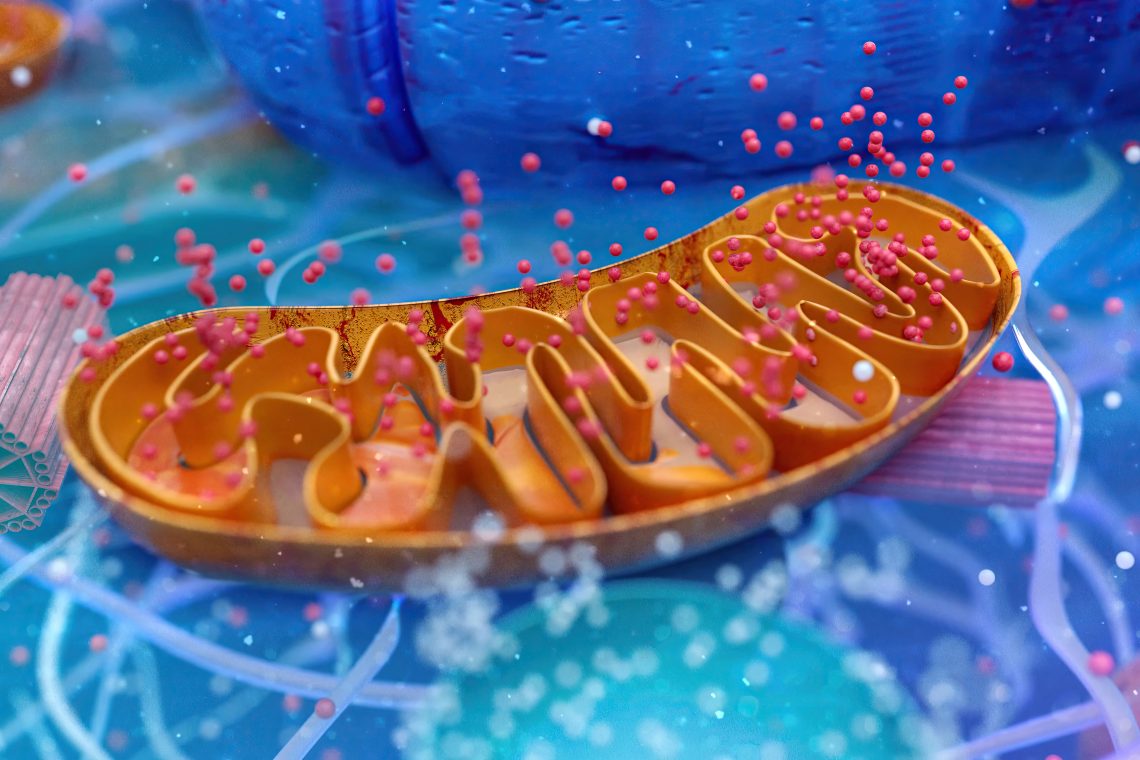







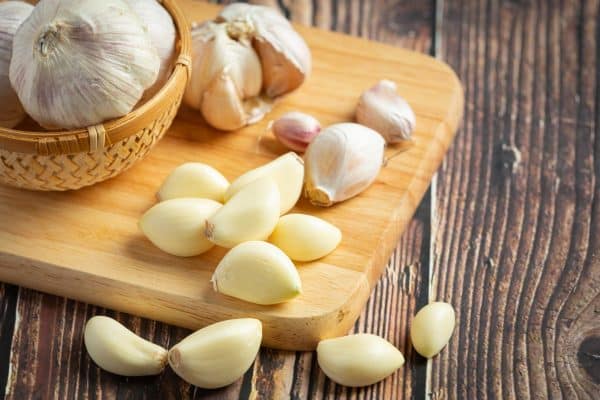

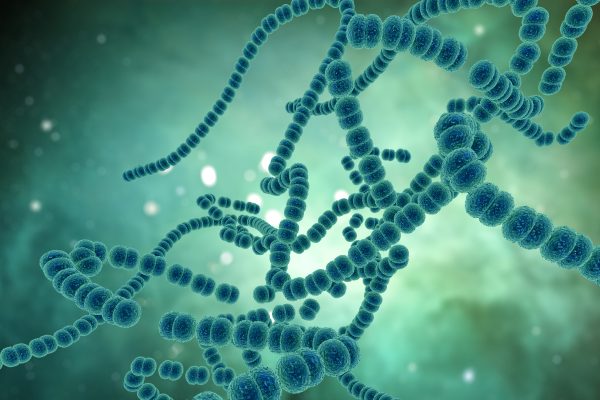

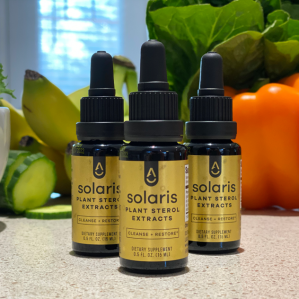

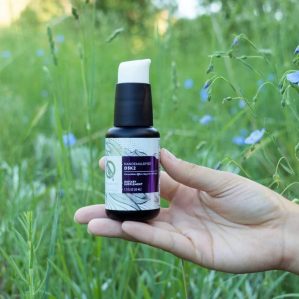
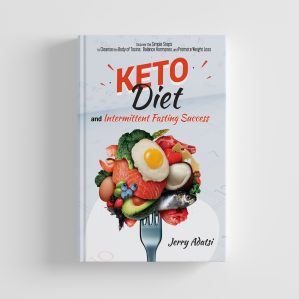












0 Comment